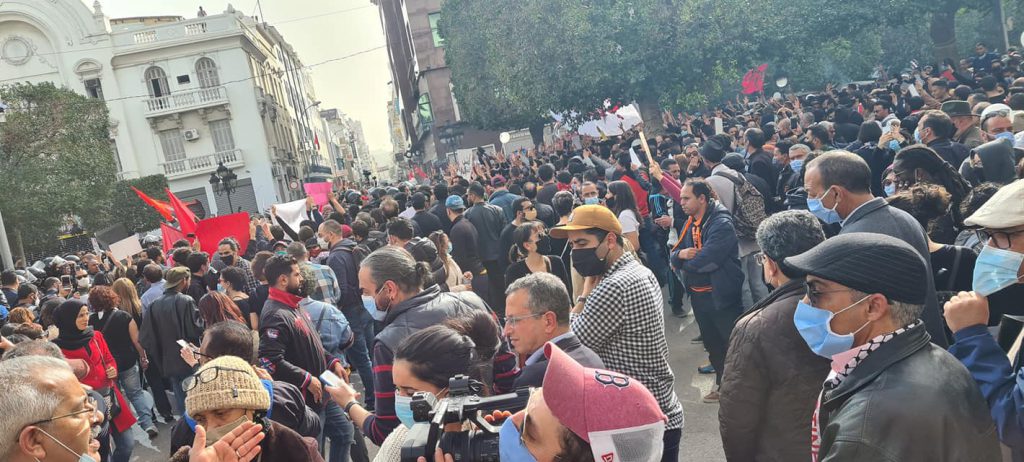Ten years after the revolution, the situation in Tunisia is explosive and there is widespread disillusionment. For over a month now, protests gathering thousands of mostly young people have been organised in cities across the country. Tunisians are desperate: the country is adrift, on the brink of economic collapse and the political, social and sanitary situation is serious. The COVID-19 pandemic has precipitated the crisis and brought the country to its knees. Since the start of the protests, the State has been non-existent and violently repressed social protests. According to the Tunisian League of Human Rights, around 1,200 people have been arbitrarily arrested, including one-third of minors. Police violence cases and degrading treatments have been reported.
Since 2011, nine Heads of Government and five Presidents of the Republic have succeeded each other at the helm of the State, but very little has changed. The country is mired in an unprecedented political crisis. An open war is currently pitting the President of the Republic and the Head of Government, a new motion of no-confidence against the President of the Assembly is being prepared and there is still no Constitutional Court, the sole instance habilitated to arbitrate disputes between the two heads of the executive. Because of this endemic political instability, no strategic vision, no redress and development plans, no response to the country’s ills can be put in place.
A political stalemate with disastrous social consequences
Studies regularly published by the Tunisian Forum for Economic and Social rights are alarming. Each year since 2011, between 50,000 and 100,000 kids leave school prematurely. This is roughly 750,000 in ten years. In 2020, around 13,000 people embarked on “death ships” including 342 women, 385 accompanied minors and 1,400 unaccompanied minors. Similarly, Tunisia recorded 235 suicide or suicide attempt cases last year, of which 30% were aged between 26 and 35 years.
These data reveal the profound despair and the lack of perspective that have been aggravated by the COVID-19 pandemic. Public debt and consumer prices continue to rise, like unemployment which reached 17.4% in the last trimester of 2020. Purchasing power and investment plummet.
Within this context, the risk facing the country is chaos since, unlike 2011 when popular protests targeted the dictatorship, the country is now a democracy. Therefore, if this popular anger is not controlled and if concrete responses to social distress are not brought quickly, the country risks being drawn into violent abuses. This risk is furthermore increased by a political climate marked by violence, corruption and by a security drift accentuated by the fact that Tunisia is surrounded by countries where armed groups are active.

